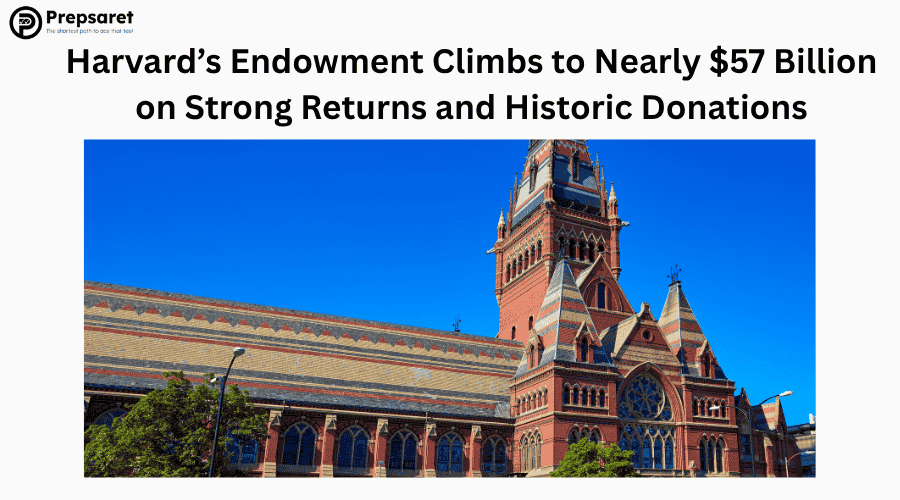Key Points:
- Harvard’s endowment grew to $56.9 billion, buoyed by an 11.9% return in fiscal 2025—well above its 8% target.
- The university received a record $600 million in unrestricted gifts, strengthening its financial base amid federal funding cuts.
- Portfolio shifts favored private equity and hedge funds, even as political pressure from the Trump administration mounted.
Endowment Growth Surpasses Targets Despite Federal Headwinds
Harvard University’s endowment, the largest among global academic institutions, rose by nearly $4 billion during fiscal year 2025, settling at $56.9 billion. The surge largely results from exceptional investment performance—Harvard Management Co. reported an 11.9% return, comfortably outpacing its long-term 8% benchmark.
In the prior year, the endowment’s return was 9.6%, raising it to about $53.2 billion. In a striking display of donor confidence, Harvard also pulled in unprecedented unrestricted gifts of $600 million, which are not earmarked for specific purposes and thus provide flexibility for operations and strategic priorities.
This influx comes as the university battles federal cuts to its research funding, which eroded its operating margin for the first time since the pandemic era. While the attacks from the Trump administration attempted to throttle federal flows, Harvard’s investment returns and philanthropy have offset much of the pressure.
In its report, the university noted a $113 million operating deficit, driven by a $116 million cut in research grants, but expects most funds to be restored following a court order to reverse the freeze.
Harvard President Alan Garber, addressing revenue risks, emphasized that the university “continues to adapt to uncertainty and threats to sources of revenue” without directly naming political actors.
Strategic Allocation and Political Context Under the Spotlight
Harvard’s endowment allocations reflect deliberate weight toward alternative investments: 41% to private equity, 31% to hedge funds, and only 14% in public equities, according to a letter from N.P. Narvekar, CEO of Harvard Management Co.
He acknowledged that having a lower public equity weighting slightly dampened year-over-year gains, but praised the success of “discerning manager selection” in elevating overall performance.
Observers note that Harvard set precedents in higher education Investing by pioneering hedge fund and private equity allocations—strategies now closely watched across the Ivy League. Those tactics remain under scrutiny amidst rising demands for transparency and accountability in university finances.
The timing is particularly noteworthy: Harvard’s endowment gain occurs amid intense political battles. President Trump has repeatedly accused Harvard of promoting antisemitism and threatened cuts to both research funding and international student enrollment.
Critics argue his attacks are part of a broader push against perceived liberal bias in academia. These policy pressures, now playing out in court, add a layer of complexity to Harvard’s financial narrative.
Still, Harvard’s ability to expand resources—even as government support wavers—demonstrates the resilience of a well-structured endowment and a robust donor ecosystem. As the university braces for continued political turbulence, its strong investment foundation and record-breaking philanthropic support offer a buffer against external shocks.

